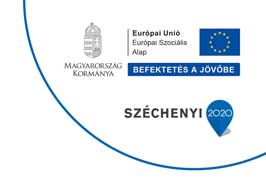Dear Visitor,
the companies of our Group, with around 9 thousand employees, supply orders from customers and meet market demand at 122 manufacturing sites across Hungary. About 83% of our employees are workers with reduced work capacity, which entails increased precision in their work, focused attention and in some cases increased tolerance of monotony. For us, there is no such thing as ‘compromise’ when it comes to meeting delivery deadlines or accuracy!
We are also supplying partners of a variety of domestic and international brands in multiple fields of manufacturing, assembly and packaging. Through our manufacturing capacities and nationwide coverage, there are no impossible challenges for us in light industrial activities requiring considerable technical/professional expertise or simpler but more labour-intensive capacities.
Our customers take their fair share of social responsibility regarding people with disabilities; and at the same time, they are supplied with products and services with which they will be fully satisfied.
In addition to our core operations, our Group operates extensive social responsibility programmes aimed, on the one hand, at helping our employees, and, on the other hand, at representing the cause of disabled people, raising awareness in society concerning workers with reduced work capacity.
Just give us a chance to prove that even workers with reduced work capacity can carry out at least as valuable work as anybody else.
Our values
The new management of ERFO Közhasznú Nonprofit Kft. (ERFO Non-Profit, Public Benefit Purpose Ltd.) wishes to operate the organisation on the basis of shared values and corporate goals enabling sustainable and economical operations. We are committed to operating the Company with the aim of employing workers with reduced work capacity, by creating its material and personal requisites.
Our organisational values are based on the following 6 basic values:
Our key milestones
The employment of people with disabilities is not a new idea in Hungary; as early as in 1826 a programme was launched in Pest with the aim of “providing help and ease for all unfortunate sons of our country for all times to come”. The institutions concerned took care of the blind, while later on, they provided them with education and vocational training. Similar efforts were made to help the deaf and hard of hearing. In the 1940s, tailors, seamstresses, producers of leather goods, carpet makers and other artisans were still working independently.
1950s
Establishment of social employers in Hungary.
September 1960
Establishment of Social Employer of the Executive Committee of the 7th district of Budapest Capital City. Employment of 300 people with reduced work capacity, people of elderly age or deprived persons, who cannot be employed in regular factory circumstances, primarily in sewing shop, book binding and packaging.
1970s
A major increase in the number of employees; some 600 people working for the company under employment contracts or as outworkers.
1980.
Employment of persons with serious or multiple disabilities in 13 workshops in district 7 in Budapest.
1989.
Opening of the central building on Dózsa György road.
April 1991.
Incorporation of ERFO Ipari Vállalat, focusing on rehabilitation employment of people with reduced work capacity.
2006.
Protected Organisation Contract, ERFO is transformed into a public benefit corporation, owned by the National Employment Public Foundation.
June 2007.
Transformation into a public benefit corporation (Kht.)
2007.
The scope of rehabilitation employment was expanded by the integration of about 900 employees taken over from Agora Kft., along with 16 new sites; commencement of the manufacture of paper and plastic products in Pécs region.
July 2009.
Transformation into a non-profit organisation.
March 2014.
A public benefit organisation with 28 plants, most of them in South-West Hungary.
2016.
Integrated management with KÉZMŰ and FŐKEFE.
2020.
Setting up a new regional production structure, group-level optimisation, creation of an integrated corporate governance system.







